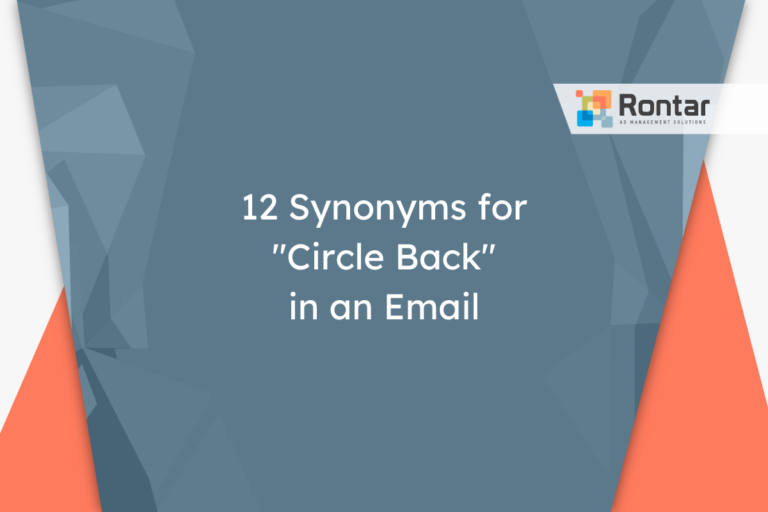10 Other Ways to Say “Please Let Me Know if You Have Any Concerns”

Being able to express your openness to questions or concerns is important, but you don’t always have to use the same phrase.
This article offers ten alternate ways to say “Please let me know if you have any concerns,” keeping your emails fresh and engaging. Each alternative is explored in detail, showing when and how to use them effectively in the workplace.
Is It Professional to Say “Please Let Me Know if You Have Any Concerns”?
Yes, it is professional to say “Please let me know if you have any concerns.” This phrase is considered formal and polite, making it appropriate for business communications. It is a courteous way to invite feedback or questions regarding the subject matter at hand. Using this phrase shows that you are open to discussion and value the recipient’s input.
This phrase can be used in various situations, such as emails, letters, or even in verbal communications. It is suitable for communication with colleagues, clients, superiors, and in some cases, even with external business partners.
Email example:
Hi Mark,
I'm writing to update you on the progress of the project we discussed last month. The attached document outlines the steps we have completed so far and our plans for the next phases.
Please let me know if you have any concerns or need further clarification on any points mentioned.
Best regards,
Jessica
Pros:
- Encourages open communication and feedback.
- Conveys respect and consideration for the recipient’s opinion.
- Enhances the professional tone of your message.
Cons:
- May be seen as overly formal in casual or familiar settings.
- Could be interpreted as vague if the context is not clear.
While this phrase is effective in many contexts, someone might want to use an alternative to tailor their message more closely to the situation or relationship with the recipient. Using synonyms or other formal alternatives can help achieve the right tone and level of formality.
10 Other Ways to Say “Please Let Me Know if You Have Any Concerns”
Here are ten common alternatives that carry the same meaning as “Please let me know if you have any concerns,” suitable for the workplace environment:
- Feel free to voice any issues.
- Your feedback is welcome.
- Reach out if you need anything.
- Don’t hesitate to share your thoughts.
- I’m open to any questions you might have.
- Let me know if anything is unclear.
- Please share your feedback.
- I’d appreciate your thoughts on this.
- Contact me if you have any questions.
- Let me know if you have any doubts.
1. Feel free to voice any issues.
This alternative is slightly less formal than the original but still maintains a professional and polite tone. It encourages open communication in a comforting manner, suggesting that feedback or concerns are not only accepted but encouraged.
This phrase is well-suited for communications where a more accessible tone is desired, without sacrificing professionalism. It works great in emails, meetings, and casual conversations with colleagues or clients who appreciate a more direct but friendly approach.
Example:
Good morning Lisa, I've attached the draft for the upcoming presentation. Feel free to voice any issues you find with the content. Best, Ethan
2. Your feedback is welcome.
This option is concise and to the point, indicating a genuine interest in the recipient’s opinion. It’s both professional and polite, embodying a straightforward request for input.
This alternative is particularly effective in environments that value brevity and clarity, such as corporate emails or project updates. It’s a good fit for all types of recipients, from teammates to higher-ups, especially when seeking feedback on specific work or decisions.
Email sample:
Hello Karen, We've made some updates to the project plan. Your feedback is welcome on the proposed changes. Regards, Tom
3. Reach out if you need anything.
This phrase takes a more informal approach while still being professional and polite. It suggests a willingness to help or provide further clarification, fostering a supportive environment.
It’s ideal for use with team members or clients you have established a comfortable rapport with. This alternative shines in emails, messages, or when closing conversations, where an open, supportive offer of assistance is appropriate.
Here’s an example:
Dear Mike, Thank you for your input on our last discussion. Reach out if you need anything. Warmest regards, Sally
This option encourages recipients to communicate freely and without reservation. It is professional, yet implies a level of informality that can make the communication feel more personal and inviting.
Suitable for internal team communications or when interacting with long-term clients, this alternative fosters an open dialogue. It works well in emails and meetings where encouraging unrestricted feedback is vital.
Email example:
Hello Team, As we prepare for the next phase, don’t hesitate to share your thoughts on the strategy. Cheers, Jordan
5. I’m open to any questions you might have.
This phrase emphasizes the sender’s openness and readiness to engage in further discussions. It’s professional, formal, and polite, making it an excellent choice for a variety of professional settings.
It’s most effective in detailed communications, such as project briefings or proposal emails, where recipients might indeed have several questions. This phrase is versatile, suitable for both higher-ups and colleagues, and works best in emails and detailed reports.
Example:
Dear Colleagues, Please review the attached report on market trends. I’m open to any questions you might have. Best, Olivia
6. Let me know if anything is unclear.
This alternative directly addresses the potential for misunderstandings or the need for further clarification, maintaining a stance that is both professional and polite. It conveys a readiness to explain in more detail if necessary.
This is a solid choice for instructional emails, complex reports, or when providing new information that might be challenging to understand. It’s applicable across all professional levels and in various mediums, from emails to presentations.
Email sample:
Hi James, Attached is the guideline for the new software installation. Let me know if anything is unclear. Best, Amelia
Here, the emphasis is on soliciting feedback, making it clear and direct. This alternative is both professional and polite, suitable for when explicit input on an issue or project is sought.
This phrase fits perfectly in situations where the goal is to gather constructive feedback, such as after a presentation, project completion, or document review. It is ideal for emails and written communications with colleagues, supervisors, or clients.
Example:
Dear Partners, Following our demo today, please share your feedback on the experience. Kind regards, Derek
8. I’d appreciate your thoughts on this.
This alternative conveys a sense of value towards the recipient’s opinions in a professional and polite manner. It’s slightly more personal, indicating that their thoughts are not only welcome but valued.
This phrase is excellent for closer working relationships or after collaborative sessions, where detailed and thoughtful feedback is encouraged. It’s especially effective in emails or direct messages focusing on collaborative review and ideation.
Here’s an example:
Hi Brenda, I’m finalizing the project proposal. I'd appreciate your thoughts on this. Thanks, Greg
9. Contact me if you have any questions.
This is a straightforward, professional, and polite way to invite questions, emphasizing accessibility. It’s universally applicable, suitable for providing instructions or information that may need further clarification.
This alternative works in a variety of situations, from emails outlining project details to documentation handovers, and is suitable for colleagues, clients, and superiors. It’s particularly useful in written communications where follow-up may be necessary.
Example:
Dear Team, Please see the updated protocol attached. Contact me if you have any questions. Sincerely, Liam
10. Let me know if you have any doubts.
This phrase, while maintaining a professional and polite tone, adds a nuance of care by addressing potential uncertainties directly. It’s an effective way to reassure recipients that questions are not just accepted but expected.
It is best used in communications that may introduce new concepts or complex instructions, ensuring recipients feel supported in seeking clarification. This alternative is versatile, fitting for emails, meeting follow-ups, or instructional documents directed at colleagues or clients.
Email sample:
Hello Sarah, I've outlined the new process in the document attached. Let me know if you have any doubts. Kind regards, Tyler
Final Thoughts
Choosing the right phrases for your professional emails can make a big difference in how your messages are received. The ten alternatives provided here allow you to communicate your openness to feedback in a variety of ways, matching the tone of your workplace and the relationship you have with your recipient. Using these options keeps your communication clear and respectful, showing your colleagues and clients that their input is valued.






